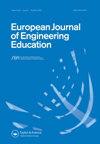在工程伦理教育中培养负责任的预期:负责任创新框架的多学科丰富如何提供帮助
IF 2.8
Q2 EDUCATION & EDUCATIONAL RESEARCH
引用次数: 0
摘要
对于工程师来说,预测新兴技术的社会伦理影响是至关重要的。这种预期行为是完全规范的,应该在工程伦理教育中加以培养。在本文中,我们问:“我们如何负责任地预测新兴技术的社会伦理影响?”以及“这种负责任的预期如何才能被教导?”我们提供了一个概念性的答案,建立在负责任创新的框架和它的四个核心实践:预期、反思、包容和响应。我们在预期、反身性和包容的实践之间建立了更明确的联系,同时也用残疾研究、STS、设计理论和哲学的见解丰富了它们。在此基础上,我们提出负责任的预期作为一种基于认知谦卑的反思性问题框架的活动。通过响应性的ri实践,我们将负责任的预期作为一种创造性的工程伦理方法,为工程专业的学生提供了一个关于伦理如何为创新提供信息的关键而富有成效的视角。本文章由计算机程序翻译,如有差异,请以英文原文为准。
Fostering responsible anticipation in engineering ethics education: how a multi-disciplinary enrichment of the responsible innovation framework can help
It is crucial for engineers to anticipate the socio-ethical impacts of emerging technologies. Such acts of anticipation are thoroughly normative and should be cultivated in engineering ethics education. In this paper we ask: ‘how do we anticipate the socio-ethical implications of emerging technologies responsibly?’ And ‘how can such responsible anticipation be taught?’ We offer a conceptual answer, building upon the framework of Responsible Innovation and its four core practices: anticipation, reflexivity, inclusion, and responsiveness. We forge a more explicit link between the practices of anticipation, reflexivity, and inclusion, while also enriching them with insights from disability studies, STS, design theory, and philosophy. On this basis we present responsible anticipation as an activity of reflective problem framing grounded in epistemic humility. Via the RI-practice of responsiveness we present responsible anticipation as a creative approach to engineering ethics, offering engineering students a critical yet productive perspective on how ethics may inform innovation.
求助全文
通过发布文献求助,成功后即可免费获取论文全文。
去求助
来源期刊

European Journal of Engineering Education
EDUCATION & EDUCATIONAL RESEARCH-
CiteScore
7.30
自引率
13.00%
发文量
64
期刊介绍:
European Journal of Engineering Education is published six times a year in print and electronic editions and provides an essential forum for dialogue between researchers and specialists in the field of engineering education, at European and worldwide levels. European Journal of Engineering Education is the Official Journal of SEFI, the Socièté Européenne pour la Formation des Ingénieurs (the European Society for Engineering Education). SEFI is a non-governmental organization whose aims are to develop information about engineering education, to improve communication and exchange between professors, researchers and students and to promote cooperation between the various institutions concerned with engineering education.
 求助内容:
求助内容: 应助结果提醒方式:
应助结果提醒方式:


